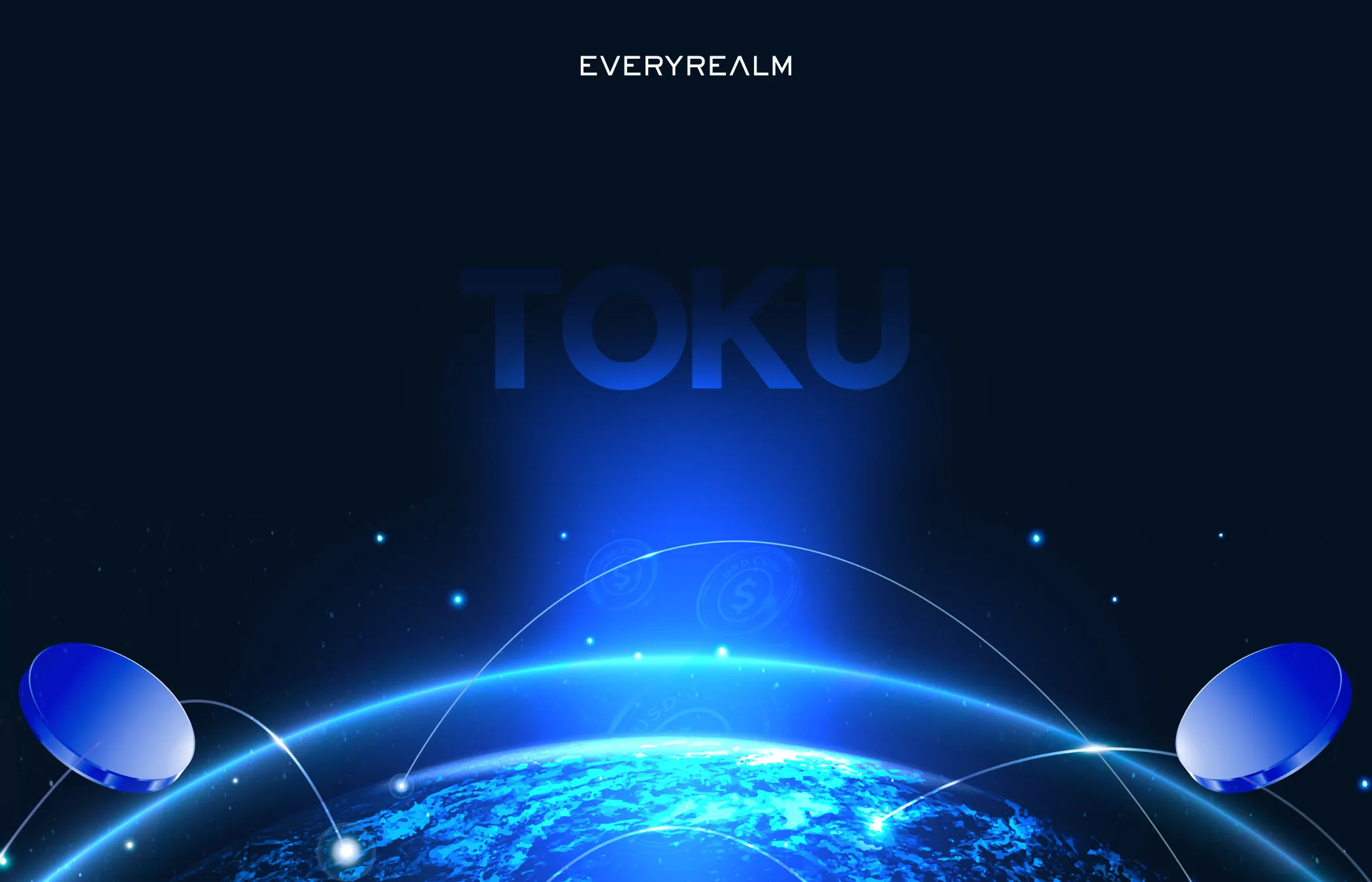
USDC Payroll Explained | How to Pay Global Teams in Stablecoins (2025 Guide)
Discover how USDC payroll works, its benefits, and how to pay global teams safely, fast, and compliantly using stablecoins like USDC.

.avif)
USDC payroll refers to the process of paying employees or contractors using USDC, a dollar-pegged stablecoin issued by Circle. Unlike volatile cryptocurrencies like Bitcoin or Ethereum, USDC is designed for predictability. Each token is backed 1:1 with US dollars held in regulated financial institutions.
For globally distributed teams, USDC solves a growing pain: international payments are slow, expensive, and unpredictable. Cross-border wires can take days, rack up high fees, and hit compliance roadblocks. Traditional payroll systems were never built for remote-first companies. USDC payroll offers an alternative - instant, transparent, programmable.
Common Problems With Traditional Global Payroll
- Cross-border wires take 3–5 days to clear
- Workers lose money to FX fees and bank middlemen
- Contractors face delays or rejections from local banks
- Manual payment operations increase risk and overhead
Toku’s role:
Toku is a SOC 2–compliant, crypto-native payroll platform that helps Web3 companies pay their teams in stablecoins like USDC. Whether you’re paying one contributor or a global workforce, Toku ensures every payment is fast, legal, and tax-compliant.
Stablecoin payroll isn’t just a “nice-to-have.” It’s quickly becoming the new standard for global compensation.
How USDC Payroll Works (Step-by-Step Guide)
From wallet funding to tax reporting, here’s what a modern, stablecoin-native payroll process actually looks like.
Paying global teams in USDC isn’t just about sending crypto to a wallet - it’s a multi-step process that includes compliance, conversion, and reporting. Done right, it can be faster and more transparent than traditional payroll. Done wrong, it can open your business up to fines, misclassification risk, and lost talent.
Below is a simplified view of what compliant USDC payroll looks like when handled through a platform like Toku:
Step-by-Step: Paying Employees in USDC
1. Fund Your Payroll Wallet
You start by transferring USDC into your payroll wallet. This can be done from an exchange (e.g., Coinbase, Binance) or a self-custodied wallet (e.g., MetaMask, Fireblocks).
2. Select Payees and Amounts
Through Toku’s dashboard, you choose which employees or contractors to pay, how much, and in which currency - USD (fiat) or USDC (stablecoin).
3. Automate Compliance + Tax Reporting
Toku handles all local tax calculations, employment classification, and ensures KYC/AML checks are in place. This applies across 100+ countries.
4. Instant Distribution to Wallets
Recipients receive their USDC instantly via supported wallets like Coinbase, Metamask, or multisig wallets for DAOs. Optional fiat conversion is available in many jurisdictions.
5. Audit-Ready Records + Receipts
Every transaction is recorded with an on-chain audit trail and matched against the correct tax and employment documentation. No messy spreadsheets or retroactive reconciliation.
How Toku Makes This Work
- One dashboard for fiat + USDC payroll
- Supports real-time tax withholding and reporting
- Offers Entity + EOR/PEO coverage globally
- Works with both custodied and non-custodied wallets
- Enables multi-user permissions and approvals for CFOs and HR leads
The Benefits of Paying Employees in USDC
Faster payments, lower fees, and fully auditable payroll - here’s why more companies are switching to stablecoin-native compensation.
In the past, paying a global team meant juggling international wires, currency conversions, bank delays, and compliance guesswork. With USDC payroll, all of that changes. Stablecoin-native payroll eliminates the friction of cross-border payments while giving your team more flexibility and transparency.
It’s not just about crypto. It’s about giving employees and contractors a better payroll experience, one that actually fits how modern, distributed teams operate. Whether your team spans five countries or fifty, USDC gives everyone access to the same fast, predictable payroll infrastructure.
For growing startups and large enterprises alike, the benefits go beyond convenience - they create tangible operational efficiencies, boost employee satisfaction, and reduce payroll support overhead.
Why Employers Love USDC Payroll
Instant, Global Transfers
Pay teams in minutes instead of days - no matter where they live or bank. With blockchain rails, there are no time zones or banking hours to worry about.
Lower Payment Costs
Eliminate wire fees, intermediary banks, and high FX spreads. This is especially useful for employers paying large distributed teams in regions like LATAM, SEA, and Africa, where fees can eat up 3–8% of compensation.
On-Chain Transparency
Every payment is verifiable, timestamped, and immutable, ideal for audit prep, investor reporting, or real-time reconciliation.
Predictability Without Volatility
Unlike BTC or ETH, USDC maintains a 1:1 peg to the U.S. dollar. That means employees always know what they’re getting paid - no surprises, no value loss.
Programmable Payroll
Automate complex payroll logic like vesting schedules, token unlocks, or milestone bonuses directly on-chain, without custom tooling or third-party platforms.
Why Talent Prefers It, Too
More Control
Employees and contractors can choose how to hold, convert, or spend their earnings. USDC works with major exchanges and wallets across Ethereum, Solana, and other chains.
No More Banking Barriers
In countries with unreliable financial infrastructure or currency controls, USDC offers a global, stable alternative. Workers in Argentina, Nigeria, or Lebanon often prefer stablecoins over volatile local currencies.
Faster Access to Earnings
Instead of waiting 3–5 business days (or longer) for international wires, workers receive USDC within minutes - even on weekends or holidays.
Modern Perception = Better Employer Brand
Offering crypto-native compensation makes your company more attractive to top talent, especially in Web3, open-source, and global tech circles.
How Toku Enhances These Benefits
Toku takes all the advantages of stablecoin payroll and makes them enterprise-grade and compliant.
- Handles fiat-equivalent tax reporting across 100+ countries
- Ensures proper worker classification (employee, contractor, DAO contributor)
- Provides EOR/PEO support where needed
- Offers one dashboard for fiat + stablecoin payroll operations
- Generates audit-ready records and tax documentation
Whether you’re paying a single contractor or scaling a full-time global team, Toku lets you harness the benefits of USDC payroll - without sacrificing legal or financial compliance.
Legal and Tax Considerations for USDC Payroll
Stablecoin payroll isn’t the wild west - but you still need to understand the rules. Here’s how to stay compliant.
Let’s be clear: paying in USDC doesn’t mean you’re off the hook for taxes or compliance. The IRS, global regulators, and labor authorities all treat stablecoin compensation as reportable income, even if the payment is digital.
The good news? USDC is easier to work with than most crypto. Its 1:1 USD peg means there's less volatility and clearer guidance. But that doesn’t mean it’s simple. From how compensation is valued to how it's reported, employers must treat USDC with the same rigor as fiat.
That’s where many crypto payroll tools fall short. They move the funds - but they don’t help you stay compliant. Toku does both.
Is USDC Payroll Legal?
Yes, if done right.
In the U.S., USDC is treated as property for tax purposes, meaning compensation must be reported based on fair market value at the time of payment. For employers, that creates obligations to:
- Calculate USD-equivalent wages in real time
- Withhold income and employment taxes
- File forms like W-2s (employees) or 1099s (contractors)
Toku automates this entire workflow, ensuring you meet IRS, FinCEN, and employment classification requirements without manual intervention.
Global Snapshot - Stablecoin Payroll by Region
What Global Employers Need to Know
Stablecoin payroll introduces complexity across borders, especially when it comes to classification, tax reporting, and licensing. For instance:
- In Germany, employee misclassification can trigger back taxes and penalties
- In Canada, compensation paid in crypto still requires T4 reporting with CAD-equivalent values
- In Nigeria, USDC may bypass unreliable banks - but local tax filings still apply
Pro tip: Even if your contractor doesn’t ask for tax documentation, your company still bears the burden of accurate reporting.
Common Crypto Payroll Compliance Gaps
- Not reporting USD-equivalent earnings on the day of payment
- Failing to distinguish between employee vs contractor
- No audit trail for payroll transactions
- Missing or incomplete KYC/AML checks
- Using unlicensed custodians or unverified wallets
- Failing to register as an employer in certain jurisdictions
These gaps can result in serious consequences: audits, fines, tax penalties, and in some regions, legal liability for misclassification.
How Toku Solves This for You
Toku is built for compliant crypto payroll at scale. Our platform automates:
- Real-time fiat valuation of all stablecoin payouts
- KYC/AML checks for all wallets (contractors and employees)
- Tax withholding and employer-side contributions
- Generation of local payroll forms (W-2, 1099, T4, etc.)
- Audit-ready logs and timestamped documentation for every payment
- Employee classification workflows to help prevent missteps
Whether you're hiring in Delaware, Dubai, or Denmark, Toku lets you offer stablecoin payroll - without breaking any rules.
USDC vs Other Stablecoins for Payroll
Not all stablecoins are created equal. Here’s how USDC stacks up, and why it’s the top choice for compliant payroll.
At first glance, stablecoins might all look the same. But when it comes to paying teams across borders, the details matter: reserve transparency, regulatory oversight, volatility, and legal clarity.
While options like USDT and DAI have their place in the broader crypto ecosystem, USDC is purpose-built for enterprises that need speed and compliance. Issued by Circle and backed 1:1 by U.S. dollar reserves held in regulated institutions, USDC offers a level of trust that other stablecoins simply don’t match.
Still wondering if USDC is the right fit? Here’s how it compares.
Why USDC Wins for Payroll
- Regulatory clarity:
USDC is issued by Circle, a U.S.-based company registered with FinCEN, and works within frameworks like MiCA and U.S. stablecoin proposals. - Transparency:
Circle publishes monthly attestation reports and operates under regular audits. Tether, by contrast, has a patchy history with transparency. - Low volatility:
Pegged 1:1 with minimal deviation, reducing the need for value hedging or post-payment conversions. - Trusted exchange support:
USDC is supported by Coinbase, Kraken, and most institutional-grade wallets and custodians.
Where Other Stablecoins Might Still Make Sense
- USDT: High liquidity and adoption in some emerging markets make it useful when banking access is limited, but it’s not ideal for regulated payroll.
- DAI: Great for DeFi teams who prioritize decentralization - but it's less predictable in value and requires active treasury management.
How Toku Helps You Choose the Right Rail
Whether you already use USDC or are exploring stablecoin payroll for the first time, Toku supports compliant payouts and conversions across multiple assets. That includes:
- Support for USDC, fiat, and other tokens (case-by-case)
- Enterprise-grade custody integration
- Global tax reporting regardless of asset used
- Audit-ready documentation for every transaction
You don’t need to be a crypto expert to run crypto payroll. Toku makes it safe, compliant, and scalable - starting with USDC.
How to Set Up USDC Payroll with Toku
Launch your first USDC payroll fast - without worrying about wallets, tax reports, or employment compliance.
Implementing USDC payroll might sound complex, but with the right tools, it’s shockingly simple. Toku eliminates the manual steps, compliance risks, and wallet management that usually come with crypto payroll.
Whether you’re a startup paying three contributors or an enterprise scaling across 50+ countries, Toku provides a compliant, automated workflow tailored for stablecoin-native teams.
Setting Up USDC Payroll with Toku
Steps:
- Create a Toku Accoun: Set up your company profile and choose the jurisdictions you want to hire in.
- Add Your Tea: Onboard employees, contractors, or DAO contributors with Toku’s guided flow.
- Select USDC as Payout Currency: Choose stablecoin (or a mix of stablecoin + fiat) as the default method for each team member.
- Fund Your Payroll Wallet: Load your company wallet via fiat, exchange, or USDC transfer - Toku handles custody or works with your provider.
- Automate Payroll: Set payment schedules, automate KYC/AML, and ensure real-time tax compliance across jurisdictions.
- Track and Report: Monitor payments, generate tax documentation, and maintain full audit trails - all in one dashboard.
What You Don’t Have to Worry About
With Toku, your team avoids:
- Managing employee wallets or private keys
- Tracking FX rates for payroll reporting
- Manually calculating crypto taxes
- Getting flagged for suspicious international payments
- Noncompliance with local labor laws
Ready to Run Payroll in USDC?
Toku makes it easy to start. No wallet juggling. No crypto compliance guesswork. Just one platform that helps you pay global teams in the currency they prefer - with the speed of stablecoins and the peace of mind of full regulatory coverage.
Launch Your First USDC Payroll with Toku
Book a demo to see how Toku can help you pay your global team in stablecoins - compliantly and effortlessly.
[Book a Demo →]
Common Questions About USDC Payroll
Still have questions? Here are answers to the most common concerns about USDC payroll, taxes, compliance, and wallets.
Is USDC payroll legal?
Yes - USDC payroll is legal in most jurisdictions, as long as employers follow the appropriate tax reporting and labor laws. In the U.S., for example, the IRS treats crypto (including stablecoins like USDC) as property, which means employers must report the fiat-equivalent value at the time of payment. Some countries require additional disclosures, while others are still forming their stance on stablecoins.
Toku tip: Toku’s compliance engine ensures your payroll meets the latest legal requirements across 100+ jurisdictions.
How do taxes work when paying in USDC?
Employees and contractors still owe taxes based on the fair market value of USDC at the time of receipt. Employers are responsible for:
- Calculating fiat-equivalent wages
- Withholding applicable taxes (where required)
- Issuing compliant tax forms (like W-2s or 1099s in the U.S.)
Toku automates this entire process - tracking conversion rates, generating reports, and ensuring local tax compliance no matter where your team is based.
Can I pay full-time employees in USDC?
Yes, but with caveats. Full-time employees can be paid in USDC as long as local employment laws allow and all required benefits, taxes, and reporting obligations are met. In some countries, labor laws require employees to be paid in government-backed currency, so a hybrid model (partial fiat, partial USDC) may be necessary.
Toku tip: We help you navigate this. Our EOR/PEO services handle compliance for both fiat and crypto payroll, so you don’t have to guess.
Which wallets can receive USDC payroll?
USDC is supported on most major wallets and exchanges, including:
- Coinbase Wallet
- MetaMask
- Phantom
- Trust Wallet
- Ledger/Trezor (hardware wallets)
- Exchange-hosted wallets (e.g., Coinbase, Kraken)
Toku supports multiple blockchain networks (Ethereum, Solana, etc.) and can work with employee-preferred wallets as long as they’re compatible with USDC.
Can I automate stablecoin payroll and taxes?
Absolutely. With Toku, payroll admins don’t need to manually manage wallets, exchange rates, or tax forms. Our platform automates the entire workflow - from funding and payouts to KYC/AML checks and payroll tax calculations. It’s designed to work like your existing fiat payroll system, just faster and with stablecoins.
The Future of Payroll Is Stable - Why USDC Leads the Way
Legacy payroll is breaking under the weight of remote teams and global expectations. Stablecoins like USDC are the fix - and Toku is your compliance-first guide.
The way we work has changed. Teams are remote, talent is global, and the expectation for speed, transparency, and flexibility is non-negotiable. But payroll? In many companies, it’s still stuck in the past - dependent on wires, banks, and infrastructure that can’t keep up.
USDC is changing that. It brings the speed and programmability of crypto with the predictability of fiat, making it the perfect vehicle for global compensation. And when paired with a platform like Toku, it becomes more than a faster payment method, it becomes a compliance-ready payroll system.
Toku isn’t just crypto-friendly. We’re crypto-native. We’ve built our EOR and PEO solutions from the ground up to support stablecoin-native payroll, tax reporting, and employment classification in over 100 countries. That means:
- You get instant, cross-border payroll with audit-ready documentation
- Your contributors stay compliant, no matter their jurisdiction
- Your finance and HR teams don’t have to manage wallets or guess at local rules
Ready to future-proof your payroll?
Talk to a Toku Expert and launch your first compliant USDC payroll today.







